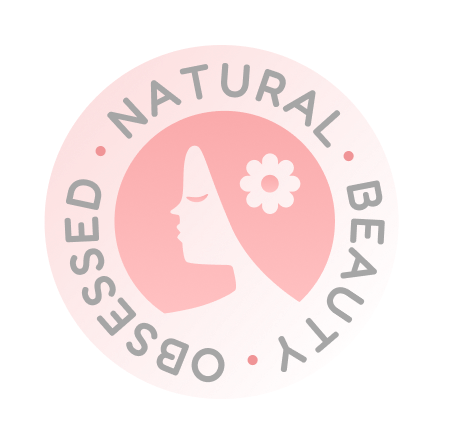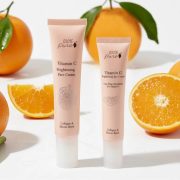Can Your Skin Actually Absorb Vitamin C—and Which Form Is Best?
Posted on July 15, 2025 Written by: 100% PURE®

Vitamin C has been a skincare favorite for years—brightening, smoothing, and protecting like a little bottle of magic. But with so many new ingredients popping up, some people are starting to wonder: is vitamin C still the real deal, or just overhyped?
While some swear by its glow-boosting powers, others say they haven’t seen the promised results. Confusion around different formulations, strengths, and skin types only adds to the mix. With all the buzz and doubt, it’s no wonder is getting a second look.
What Vitamin C Does for the Skin
is a powerhouse ingredient in skincare for good reason. As a potent , it protects the skin from free radical damage caused by UV rays, pollution, and daily stressors. It also helps stimulate collagen and elastin production, leading to firmer, smoother skin with reduced fine lines.
One of its standout benefits is its ability to brighten the complexion and fade dark spots by slowing down melanin production. On top of that, it supports the skin’s natural repair process, helping to reverse signs of environmental damage. The result? A more radiant, even-toned, and resilient complexion with consistent use.

Not All Vitamin C Is Created Equal
While is a popular skincare ingredient, not all types are created equal, especially when it comes to stability and skin compatibility. is the purest and most well-researched form, known for delivering strong results. However, it’s also highly unstable and can quickly degrade when exposed to light, air, or heat, reducing its effectiveness and potentially irritating the skin.
To address these issues, more stable derivatives are used in modern formulations. Magnesium Ascorbyl Phosphate (MAP) is water-soluble, gentle, and ideal for sensitive skin. Sodium Ascorbyl Phosphate (SAP)is known for its antibacterial properties, making it a great choice for acne-prone skin. Oil-soluble options like Ascorbyl Glucoside and Tetrahexyldecyl Ascorbate offer deeper skin penetration and a longer shelf life.
However, beware of an unstable form of vitamin C. It can oxidize before it even reaches your skin, making it ineffective—or worse, irritating. Choosing a stable formulation ensures better results and less risk.
Best Practices for Using a Vitamin C Serum
Ideal Time to Apply
Vitamin C works best when used in the morning, as it helps protect your skin from environmental aggressors like UV rays, pollution, and free radicals throughout the day. That said, it can also be used at night if your routine calls for it. Just be cautious not to pair it with stronger actives like retinol or exfoliating acids unless they’re specifically formulated to work together.
How to Layer It Correctly
Vitamin C serums should be applied after cleansing and toning, but before moisturizer and sunscreen. This ensures the active ingredient can fully absorb into your skin without being blocked by heavier products.
As a general rule, apply your skincare from thinnest to thickest in consistency to get the most benefit from each step.
What Not to Mix With
While vitamin C is a versatile ingredient, it doesn’t always play well with others. Avoid layering it with retinol, AHAs (like glycolic acid), or BHAs (like salicylic acid)in the same routine unless your product is formulated with a blend of these actives. Mixing these on your own can lead to irritation, dryness, or increased sensitivity.
Smart Storage Tips
Vitamin C is notoriously unstable, especially in its purest form (L-ascorbic acid), so proper storage is essential to keep it effective:
- Store the bottle in a cool, dark place, such as a drawer or cabinet—avoid leaving it on a bathroom shelf exposed to humidity and light.
- Always ensure the cap is tightly closed to minimize air exposure.
- If your serum starts to darken in color (turning yellow, orange, or brown) or develops a metallic or sour smell, it’s likely oxidized and should be replaced.
Pro Tip: To maximize the protective benefits of vitamin C during the day, always follow it with a broad-spectrum sunscreen. This combination not only enhances antioxidant protection but also helps prevent sun-induced pigmentation and skin aging.

The Best Vitamin C Serums from 100% PURE
100% PURE has crafted a well-rounded collection of vitamin C-based products that blend potent antioxidants with ingredients. Whether you prefer a lightweight serum, a nourishing facial oil, or a treatment mask, our range offers something for every skin concern and routine.
A gentle, aloe-based gel serum infused with stabilized vitamin C to brighten skin tone and encourage collagen production. Enhanced with alpha-lipoic acid (ALA) and green apple extract, it also helps hydrate and protect the skin against environmental stressors. Ideal for daily use on all skin types.
This nighttime serum combines magnesium ascorbyl phosphate (a stable, non-irritating form of vitamin C) with niacinamide, vitamin E, and CoQ10. Together, these ingredients target dark spots, fine lines, and dullness while you sleep, perfect for anti-aging support and skin renewal.
A rich, antioxidant-packed facial oil featuring vitamins C and E, this formula is ideal for dry or mature skin. It helps nourish, smooth, and seal in moisture overnight, making it an excellent final step in your evening routine.
This exfoliating mask blends vitamin C with beet-derived lactic acid and kojic acid for a gentle yet effective brightening boost. It helps slough off dead skin cells, fade hyperpigmentation, and reveal a more radiant complexion after just a few uses.
A targeted treatment serum made with natural brighteners like vitamin C, sake, and licorice root extract. It works to even out skin tone, reduce sunspots, and give your skin a refreshed, luminous glow—ideal for those struggling with uneven pigmentation or dullness.
These vitamin C products from offer effective, skin-loving options powered by nature and backed by thoughtful formulation.
Choosing the Right Vitamin C for You
Not all vitamin C is overhyped—it truly depends on the formulation. Stabilized forms like , combined with proper application and storage, make a big difference in results. Whether you prefer a gel, oil, or serum, picking the right product for your skin type and routine is key. With the right formula, vitamin C remains one of skincare’s most effective and trusted ingredients.
FAQ
What does vitamin C serum do for your face?
Vitamin C serum is a powerful antioxidant that helps protect your skin from free radical damage caused by sun exposure and pollution. It brightens dull skin, fades dark spots and acne scars, and boosts collagen production for firmer, smoother skin. With regular use, it promotes a more radiant, even-toned, and youthful complexion.
How can I tell if my vitamin C serum has oxidized?
An oxidized vitamin C serum typically changes color, shifting from clear or pale yellow to deep yellow, orange, or brown. It may also develop a sour, metallic, or unpleasant scent. Once oxidized, the serum becomes less effective and may cause skin irritation, so it’s best to stop using it.
Can I use vitamin C serum every day?
Yes, vitamin C can be used daily, most commonly in the morning, to help protect against environmental damage. If you’re new to it or have sensitive skin, start with a few times a week and gradually build up. Always follow it with moisturizer and sunscreen to maximize its benefits.
What’s the difference between vitamin C and ascorbic acid?
Ascorbic acid is the purest and most potent form of vitamin C, known for delivering fast, visible results. However, it’s also highly unstable and can degrade quickly when exposed to light or air. Other forms like MAP or SAP are more stable and gentler, making them ideal for sensitive or acne-prone skin.
Should I refrigerate my vitamin C serum?
Refrigeration isn’t strictly necessary, but it can help extend the shelf life of vitamin C serums, especially those containing L-ascorbic acid. The cooler temperature slows down oxidation, keeping the formula effective for longer. If not refrigerated, always store it in a cool, dark place away from sunlight and heat.




